Unveiling the Challenges and Opportunities in Global Supply Chains
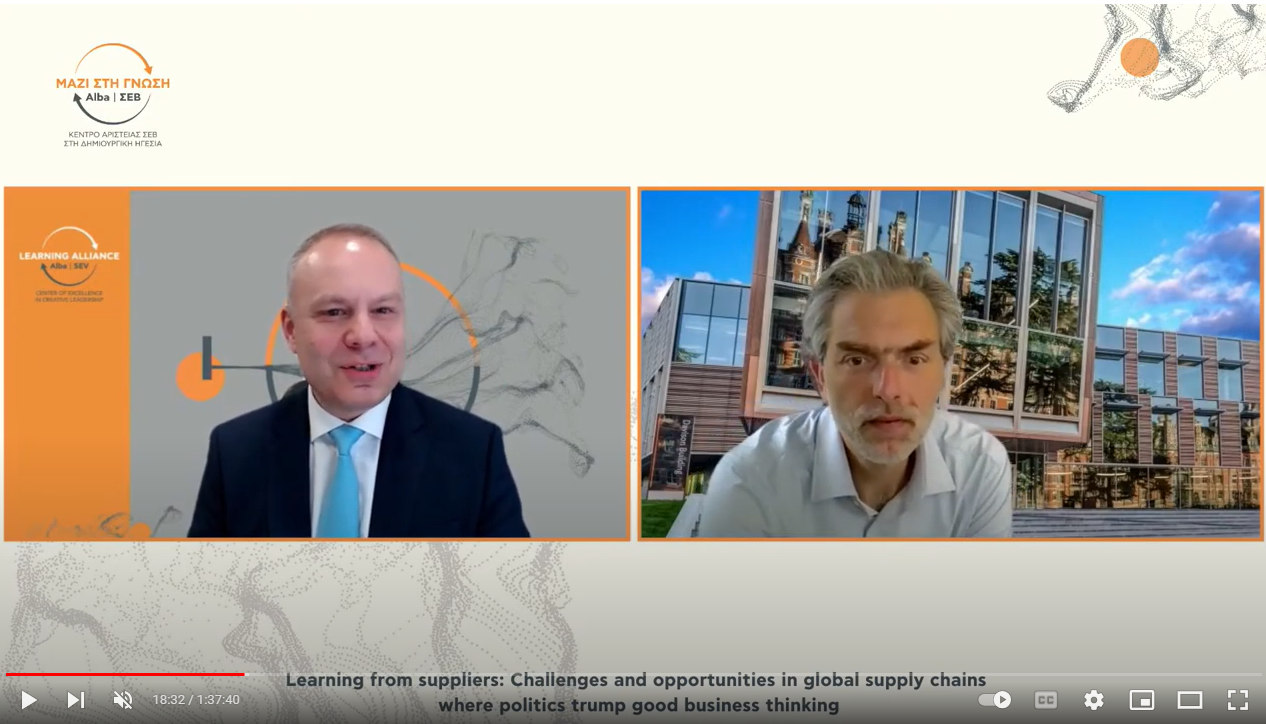
The SEV Learning Alliance Discussion Series 2023 wrapped up with a thought-provoking presentation on June 15 entitled: “Learning from suppliers: challenges and opportunities in global supply chains where politics trump good business thinking” that provided valuable insights into creating resilient and sustainable supply chains amidst politically driven disruptions. The guest speaker was Dr. Christos Tsinopoulos, Professor of Operations Management, Dean of the School of Business & Management at Royal Holloway, University of London. He shed light on the key features that enable a seamless supply chain and the benefits of sharing data with suppliers when pursuing innovation in new product development.

Machi Doumoura, Program Manager of the Alba Executive MBA and Curator of the SEV Center of Excellence in Creative Leadership, opened the presentation. She was followed by Giannos Mitsos,Senior Advisor at SEV (Hellenic Federation of Enterprises), who emphasized the importance of fostering continued, fruitful collaboration between SEV and Alba, thus enabling new ideas and solutions to emerge, driving innovation and pushing the boundaries of what is possible. Mitsos expressed optimism about Greece's prospects when he stated: “The latest evaluation of the World Bank, in terms of the efficiency of the logistics sector and the supply chain, ranked Greece in 19th place in 2023, a notable improvement from its previous position of 42nd in 2018.” To capitalize on these opportunities, he stressed the need to invest in infrastructure, adopt advanced technologies, foster innovation, and embrace sustainable business practices.
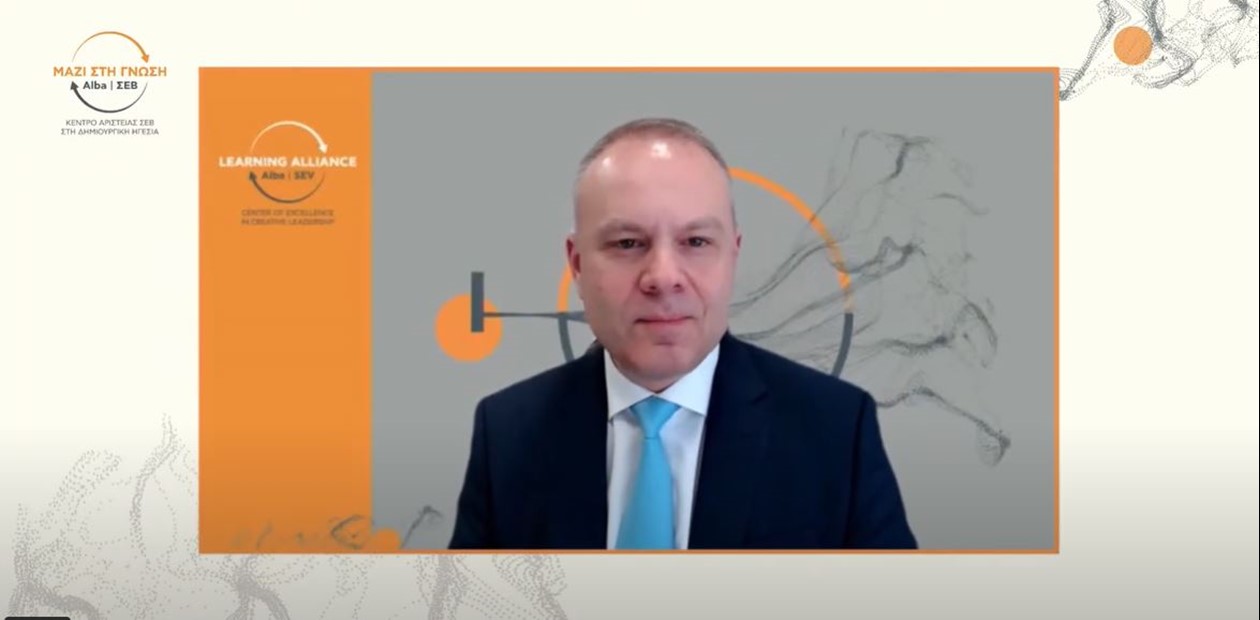
Dr. Nikos Mylonopoulos, Professor of Digital Business at Alba and Director of the SEV Center of Excellence in Creative Leadership, introduced the topic and the speaker, explaining how disruptions in the global supply chain have far-reaching implications affecting the innovation potential of businesses as well as consumers who may experience limited product availability, higher prices, and longer waiting times. Overall, he stated that disruptions in the global supply chain require concerted efforts from businesses, governments, and society as a whole to overcome. By acknowledging these challenges and actively seeking solutions, we can navigate through successive crises and strive for a more resilient and sustainable future.

In his presentation, Dr. Tsinopoulos highlighted the crucial role of logistics within the broader context of the supply chain and tried to answer the question of what managers can do when the disruption in global supply chains is a consequence of deliberate government decisions. He discussed the concepts of learning, resilience and integration, emphasizing their significance in supply chain operations.
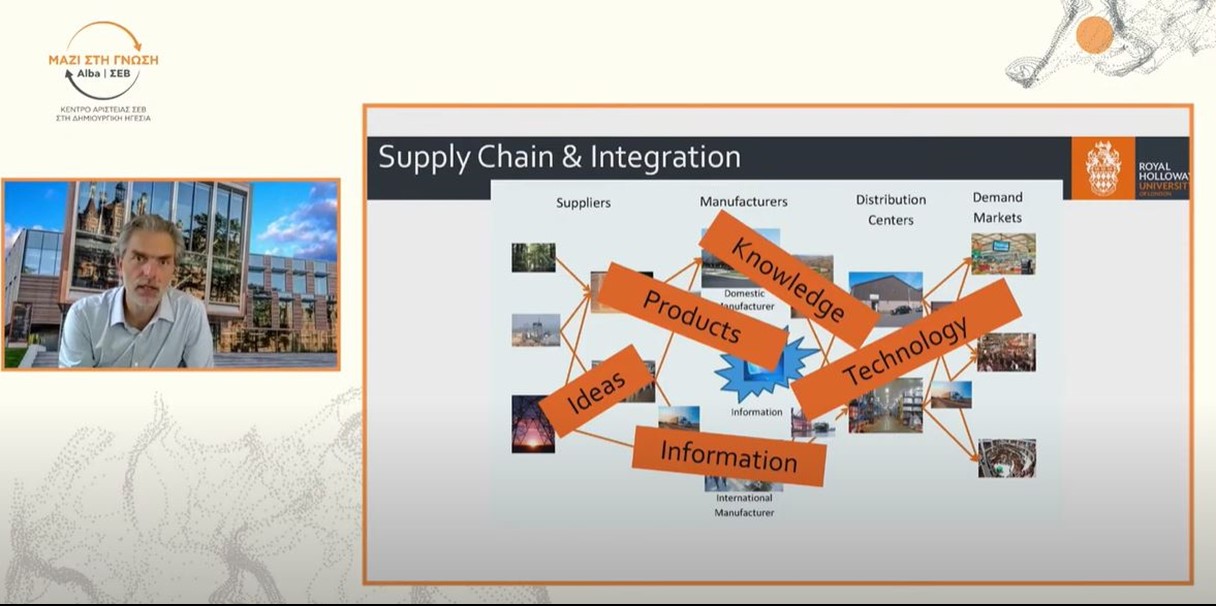
Using examples from his own research, Dr. Tsinopoulos explained how technology, flexibility and careful process design can be used to manage situations where politics trump good business thinking. His findings proved that integration matters: “When companies manage their supply chains well, they can improve decision making on investments in automation, identify how to conduct data-driven decision making, rethink their use of data and utilize suppliers as sources of learning.”
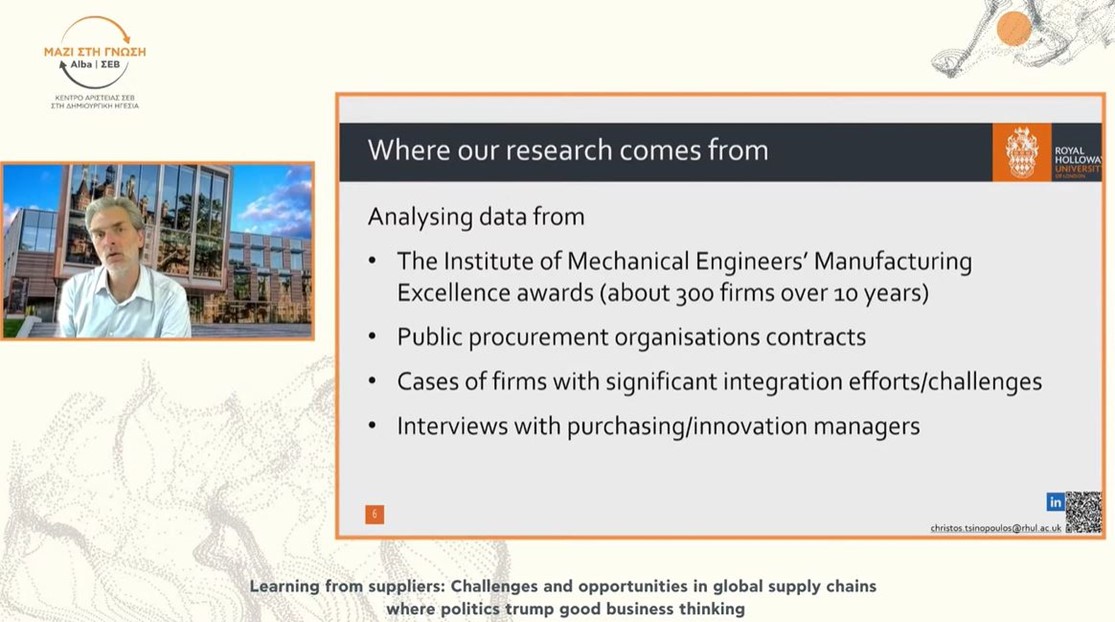
Furthermore, suppliers can be excellent sources of innovation and provide ideas and informed solutions to the problems their customers are facing. However, supply chains also face constant challenges, such as uncertainty, disruption, competition and external factors (e.g., pandemic, wars). To address these challenges, supply chain managers advocate for government policies that facilitate the free and uninterrupted flow of information based on common rules and standards.
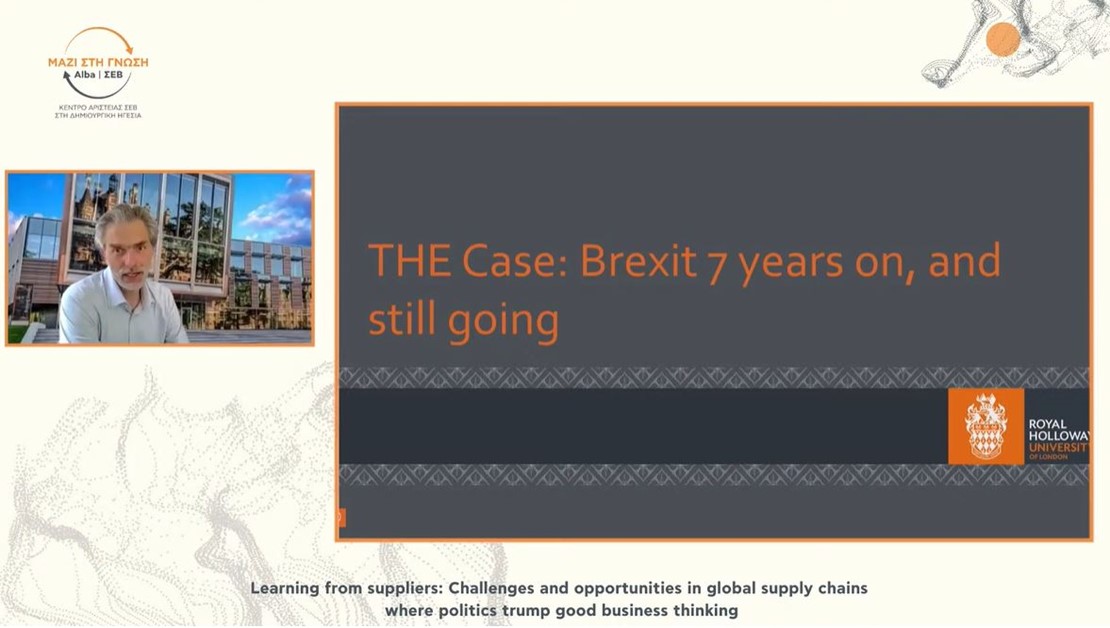
Economic blocs, like the EU and NAFTA, have historically provided a favorable environment for effective supply chain operations, but recent political developments, such as Brexit, have given rise to several challenges. For example, one notable consequence of Brexit is the decrease in common standards, which leads to greater divergence and market wfragmentation. Dr. Tsinopoulos emphasized that companies that have reconfigured their supply chains, becoming more resilient and adapting to new circumstances, have emerged as winners during this period of transition. Dr. Tsinopoulos encapsulated this when he stated: “As the political landscape changed and trade barriers were introduced, these companies took proactive measures to adjust their supply chain operations, enabling them to navigate the challenges and capitalize on emerging opportunities. By embracing flexibility, exploring alternative sourcing options, leveraging technology, and implementing strategic process design, these companies were able to position themselves for success in the post-Brexit era. Their ability to adapt and optimize their supply chains contributed to their competitive advantage and ultimately led to their success.”
You can view the presentation in Greek here.





